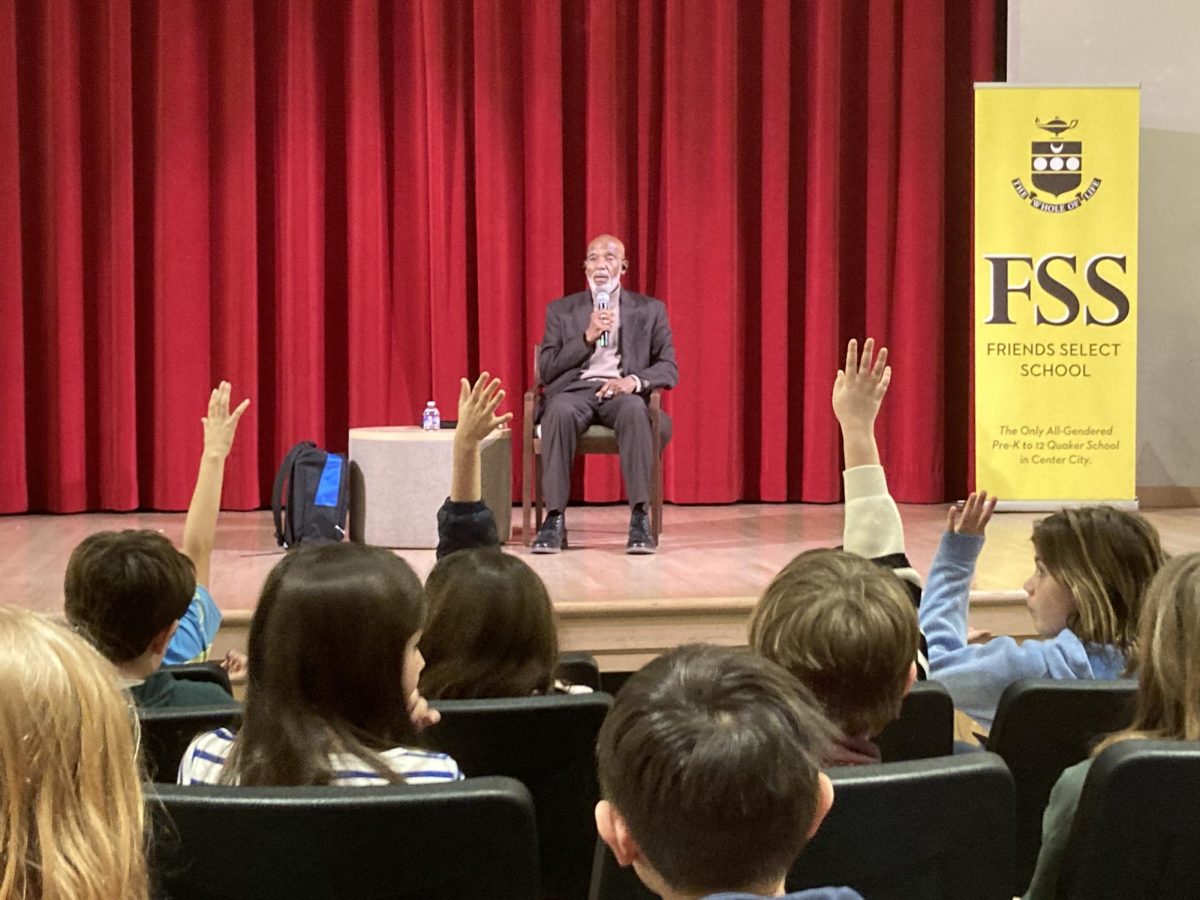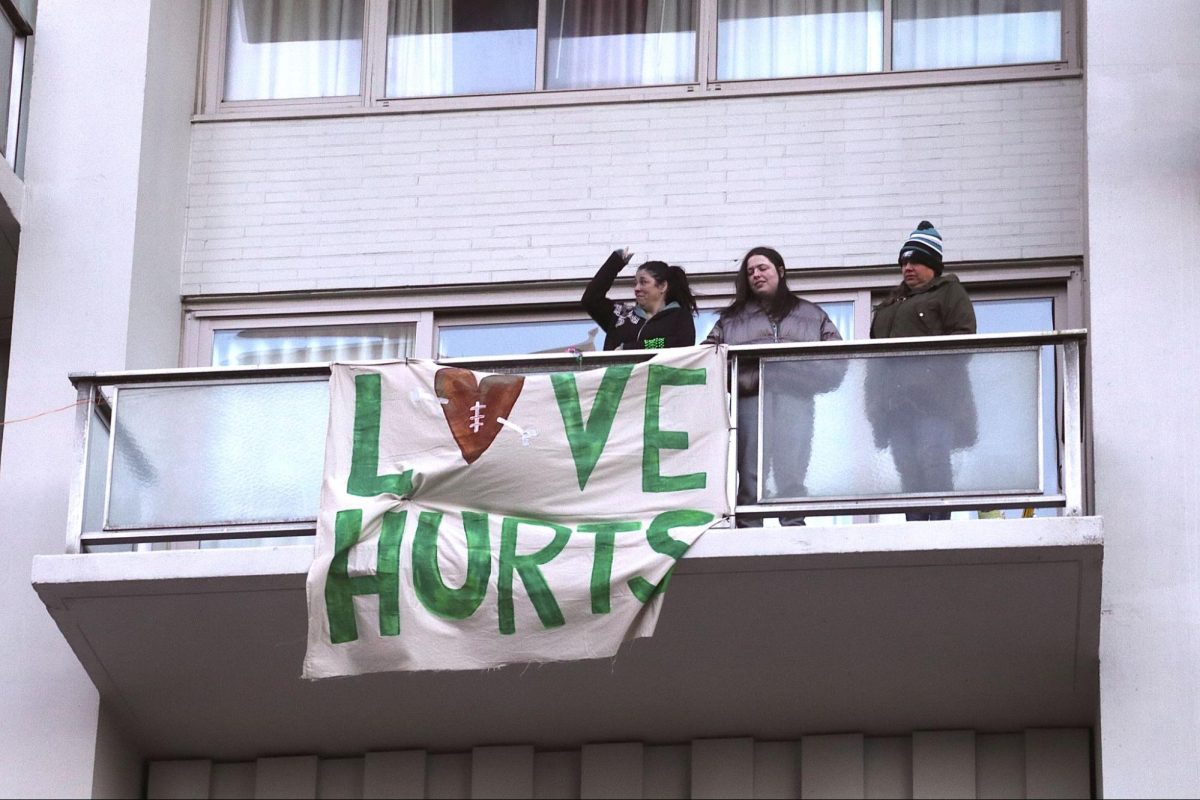Opinion: Is Love Blind? Not on TV!
Do you think you could fall in love with someone, sight unseen? Or better yet, get engaged after ten days? Or, get this: be married after one month? All of these questions are tested on the reality television show Love is Blind. Love is Blind has not proved to me that love is blind, but even if it is, this show doesn’t attract the people who would prove it. Love is Blind is a reality TV show that challenges contestants from across America. Thirty single people (fifteen men and fifteen women because this show is not interested in producing LGBTQ+ storylines) live amongst each other.
All contestants have their own “pods” where they can talk to the other person through a wall, sight unseen. After no more than ten days, one person will propose to another, and they will finally get to see each other. After this, there are a few weeks of getting to live with each other leading up to their weddings. Yes, you heard me right: weddings. I am critical of many aspects of this show that I will dive into below.
At the end of the day, Love is Blind is a reality television show. Many people who are drawn to reality television shows are looking to make their big break into show business. The people the show attracts can be very looks-oriented in their lives and project that in the pods’ conversations. Although one would think that the goal/benefit of these pods is that contestants don’t know what the other person looks like and would rather fall in love with their personality, some contestants have found loopholes. One man, “Shake,” who is a 32 year old veterinarian, questioned some of the women he spoke to, asking and stating, “Do you work out?[…] Are you Latina? […] I get along best with people who work out. What is your size?” This interrogation displays Shake’s superficial focus and also may hint at some of his co-stars’ similar behaviors.
My second bone to pick with the show is that the timeline in Love is Blind does not reflect real life. If the show truly wanted to experiment with the concept of blind love and determine if people could fall in love regardless of appearance, they would create a more relaxed and personalized environment for that. According to News Scientist, it takes men, on average, 88 days to fall in love and women 134 days. Dawn Michael, Ph.D. says couples should be together one to three years before getting engaged, but Love is Blind has a different timeline in mind. First, each contestant speed dates for 8-10 minutes with everyone. Then they date the people they connect with the most for 10 days. Then they go on a paradise-like vacation for a week, followed by moving into an apartment that the show rents out where they live for a couple of weeks before walking down the aisle. All in all, not a totally conducive environment for a long healthy marriage to form.
My third critique of the show is its rigid nature. Frequently, people are expected to move too fast and turn their lives upside down. Even if these couples truly fall in love, they might not want to get married after such a short period of time. The show doesn’t just say that they can get married; the show insists that the participants’ loved ones be invited to a marriage ceremony. Even if the couple is predicted to say “no” at the altar, or even if they have discussed not getting married but still continuing their relationship in “the real world,” they must walk down the aisle. One couple from the latest season shows the flaw in this rule of the show. Cole and Zanab had a very rough on-the-altar breakup. Zanab aired out all of the couple’s dirty laundry which resulted in weeks of online debates about the couple. It was awful for everyone involved, in particular, the families and friends who had come all that way. Though the contestants know what they sign up for, they may not have imagined the level of humiliation.
One thing I must acknowledge is that compulsory marriage has worked for some. As one participant, Lauren — who has been happily married to her husband whom she met on the show — said: “Not saying I want to marry Shrek or anything like that, but if Shrek had a good personality, I mean…” Her response suggests that some people may be there for the right reasons. For Lauren, personality far outweighs looks.
Funnily enough, Lauren’s husband, Cameron, concurs, although he went into the experiment with that attitude: “As a scientist, I’m a believer in this experiment that’s removing the confounding variables of ethnicity, race, background, and the big one being physical appearance. None of that matters […] As the diligent scientist that I am, I came into this wanting to test that hypothesis: is love blind?” Largely, however, I think I agree with this contestant, Jessica, in many ways when she noted that the show just didn’t work for her, “For some people, love might be blind, but for me, it’s definitely not. It’s a mixture of mind, body, and soul, and I never got there.”
Though it is certainly entertaining, Love is Blind does not prove their hypothesis. They instead often create a torturous experience for their stars and facilitate a horrible few months of dating, engagement, and marriage all while dragging families and friends down throughout the process.























